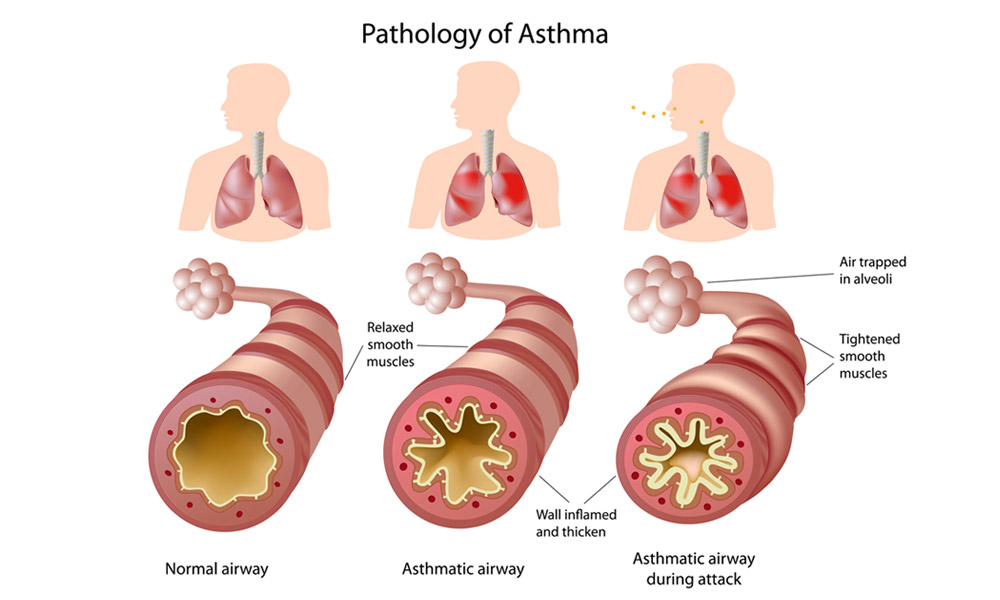
Asthma is a very common respiratory condition in the UK, affecting 4.3 million people over 18 and 1.1 million children.
We now have good and effective treatments but that cannot cure the condition. They need to be taken regularly – often daily – to keep the symptoms of asthma under control.
Asthma can make life miserable
Even mild asthma can make it difficult to do sports at school, to get exercise as a young adult and to climb stairs and get about as you get older.
Severe asthma can be disabling, taking away any quality of life and making each day a struggle for breath.
Over a million working days are lost each year due to asthma symptoms.
Asthma can kill
Deaths from asthma used to be much more common 50 years ago and it is very good news that the death rate has reduced significantly since then. But three people in the UK still die due to an asthma attack – each day.
Two out of three of these deaths could be prevented by regular asthma reviews and regular medication.
Managing asthma
If you have asthma, Dr Gareth Roberts recommends that you:
- Go to your check ups and appointments regularly to make sure your symptoms are under proper control.
- See your doctor if your symptoms get worse.
- Always get your repeat prescriptions and take your asthma medication as advised.

The main treatments for asthma
The most common asthma treatments involve inhalers. This is just a brief overview – Dr Roberts can explain the options available in more detail at your consultation.
Reliever inhalers
These are meant to be carried around with you and taken if you feel breathless or wheezy. Don’t put off taking your inhaler if you get symptoms.
If you need to take your reliever inhaler more than three times a week, however, your asthma is not under proper control. Your preventer inhaler (see below) may need a review.
Preventer inhalers
These are taken twice a day, once in the morning and once at night. They are meant to be taken regularly, even when you don’t have symptoms.
The medicines inside the preventer inhalers reduce inflammation in the airways, making it much less likely that you will have a flare up due to being exposed to pollen, dust, cigarette smoke or other triggers.
Steroid tablets for severe asthma
In very severe cases, steroid tablets are required, sometimes for long periods, to prevent the airways getting inflamed. This type of treatment is usually managed by a Consultant in Respiratory Medicine rather than a GP alone.
Worried about taking asthma medication?
Asthma UK has some excellent information for people with asthma, including common worries about taking asthma medication. [link to http://www.asthma.org.uk/advice-whats-stopping-you]
Services for asthma patients
Dr Roberts has many years experience diagnosing and treating asthma in adults in his NHS practice.
You are welcome to make an appointment to have a review of your symptoms and medications to find out if your asthma can be better controlled.
We can advise you of the latest asthma treatments available, some of which may not be accessible via the NHS.
